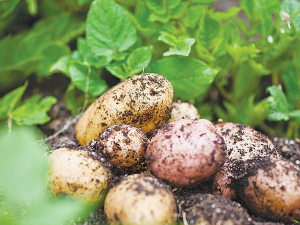Resistant pests a global problem for ag sector
A major global challenge for the agricultural industry is pesticide resistance. A resulting loss of pesticide options can be costly and environmentally harmful.
 A new pesticide to combat parasitic worms in carrots, kumara, parsnips, and potatoes has been approved for use in New Zealand.
A new pesticide to combat parasitic worms in carrots, kumara, parsnips, and potatoes has been approved for use in New Zealand.
A new pesticide to combat parasitic worms in carrots, kumara, parsnips, and potatoes has been approved for use in New Zealand.
Plant-parasitic worms, or nematodes, are considered a major risk to root vegetables, with producers sometimes experiencing complete crop failure from the damage they cause.
The applicant, Adama New Zealand Limited, says it’s product Nimlitz will be an important tool to ensure the economic viability of these crops.
“EPA staff conducted comprehensive risk assessments and found the risks to people and the environment to be negligible, with appropriate rules in place,” says Dr Lauren Fleury, hazardous substances applications manager.
“Nimlitz is restricted to commercial use by professionals, and is a less hazardous alternative to fenamiphos-containing substances that are currently used. It will help reduce risks to workers, the soil, and the environment.”
The product contains the active ingredient fluensulfone, which is new to New Zealand but has been approved for use in various countries, including Australia, Canada, Japan, the United States, India and Brazil.
Donald Trump's latest tariff tantrum has again thrown the world of trade into a new round of turmoil and uncertainty, and NZ is caught up in it.
The third edition of the NZ Dairy Expo, held in mid-February in Matamata, has shown that the KISS principle (keep it simple stupid) was getting a positive response from exhibitors and visitors alike.
Twenty years ago, South African dairy farm manager Louis Vandenberg was sent to a farm in Waikato to provide training on Afimilk technology.
Strong farmgate milk price is helping boost investment on farms, says PGG Wrightson chief executive Stephen Guerin.
Fonterra's 460 milk suppliers in Australia, who will switch to Lactalis end of this month, are unfazed with the impending change.
The 5+ A Day Charitable Trust has launched a collection of affordable recipes designed to turn everyday vegetables into seasonal stars.

OPINION: A mate of yours truly reckons rural Manawatu families are the latest to suffer under what he calls the…
OPINION: If old Winston Peters thinks building trade relations with new nations, such as India, isn't a necessary investment in…